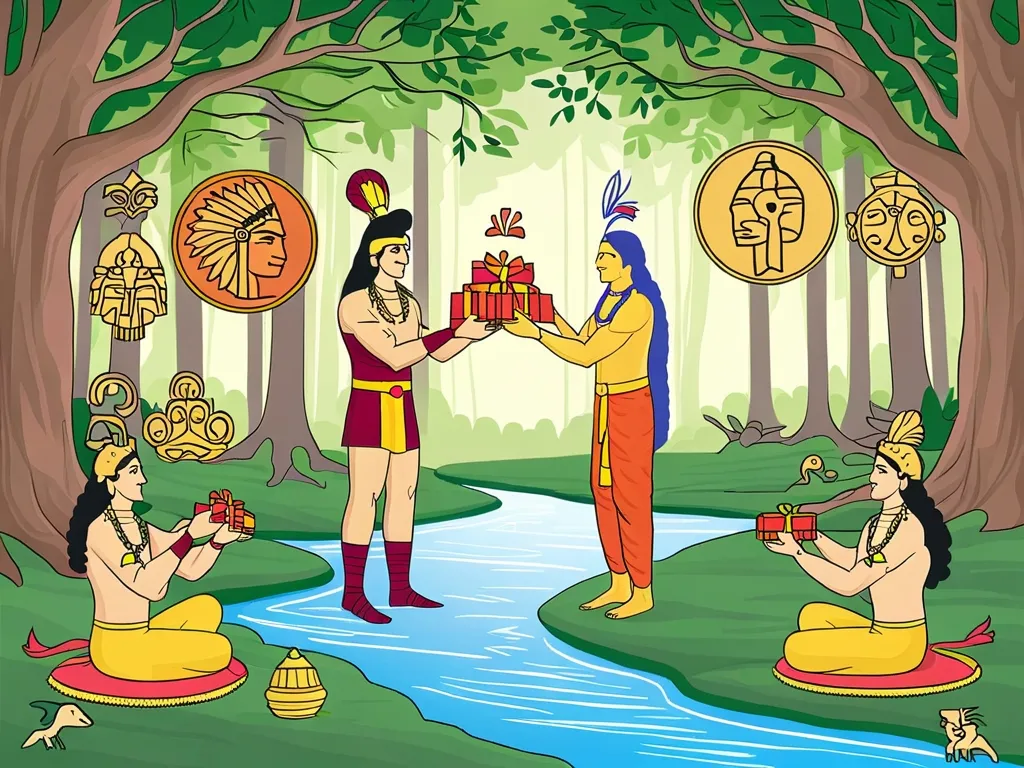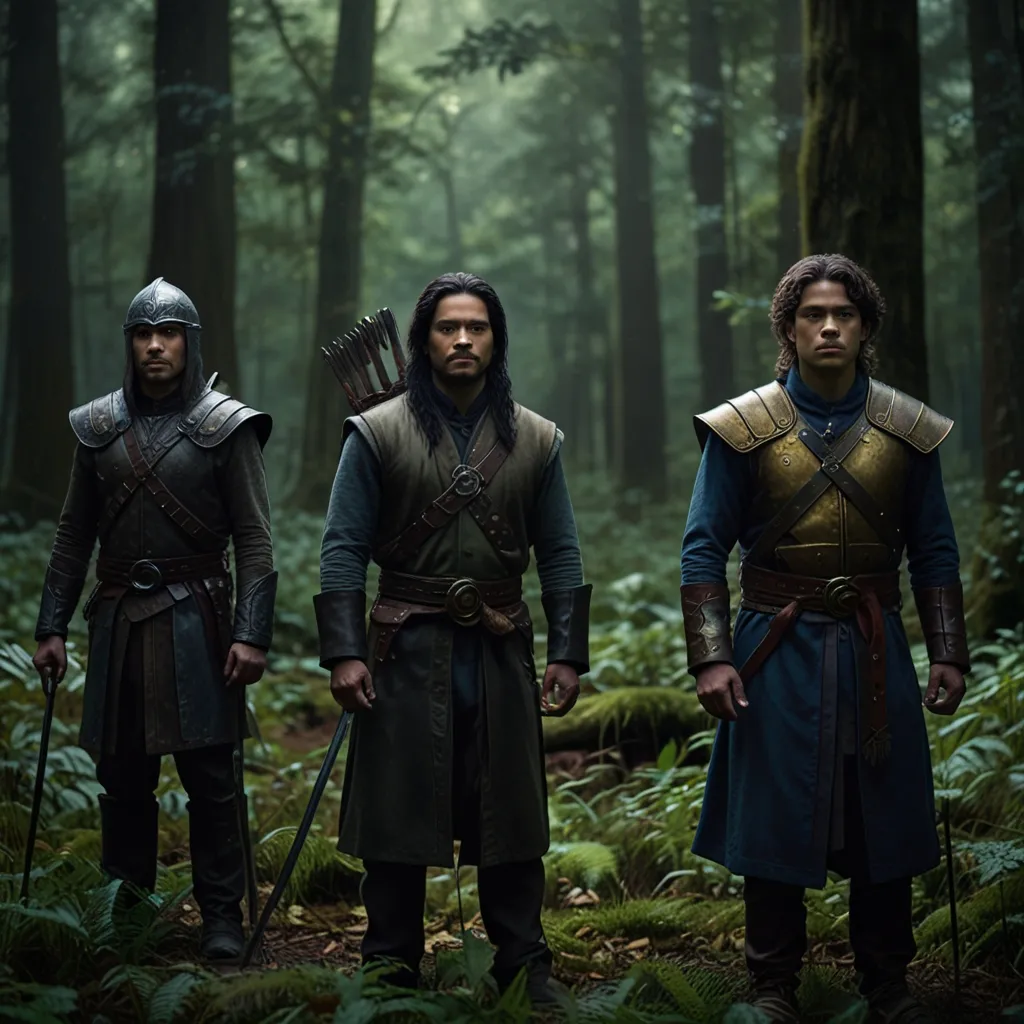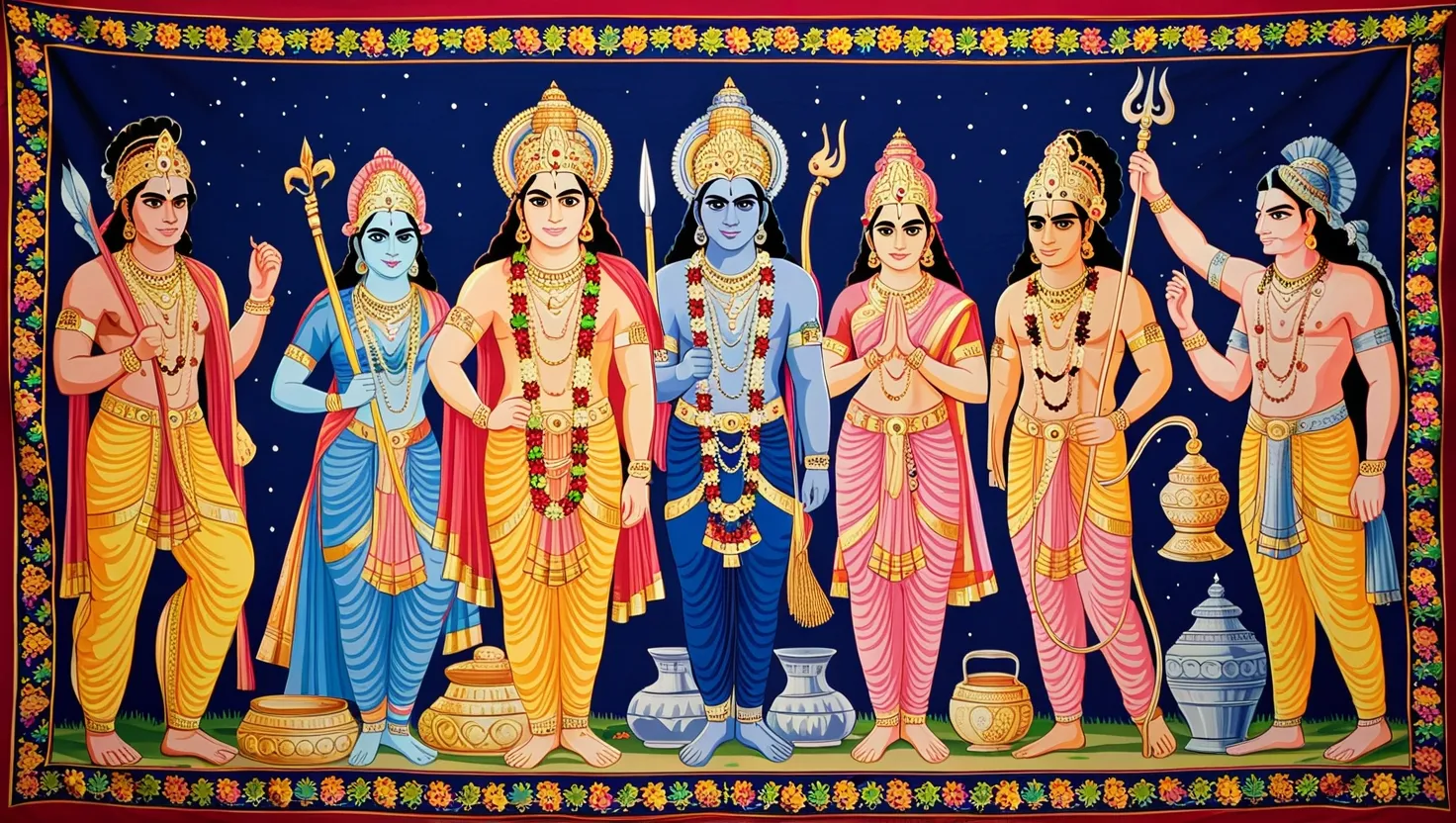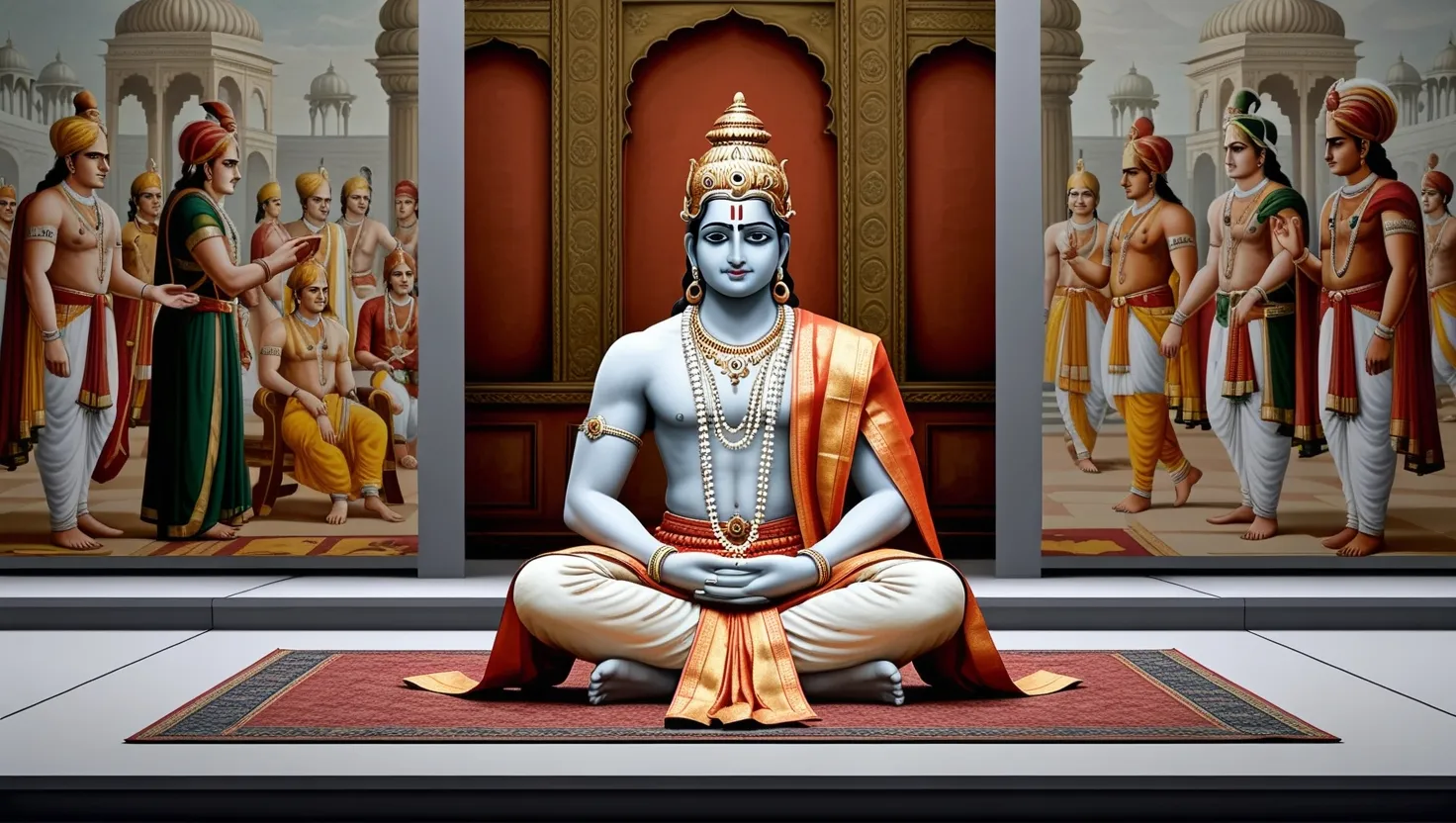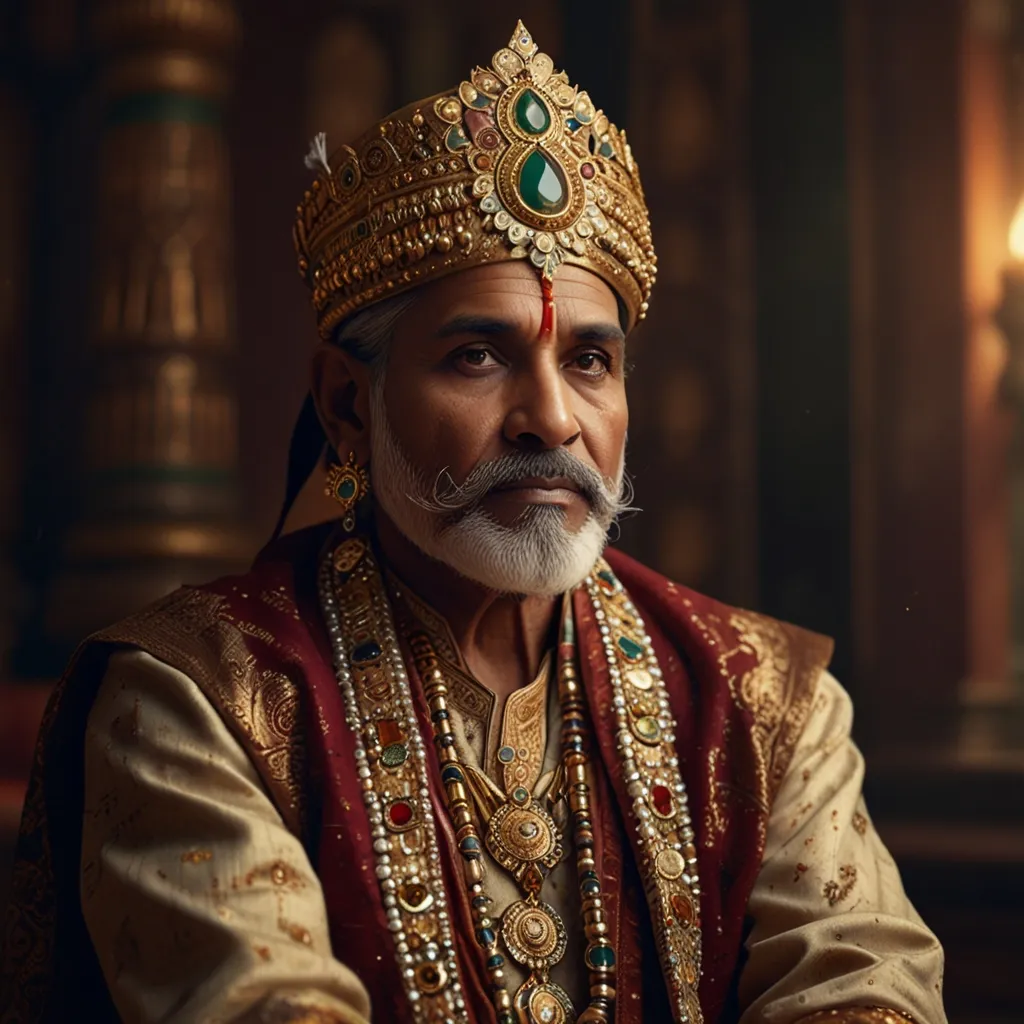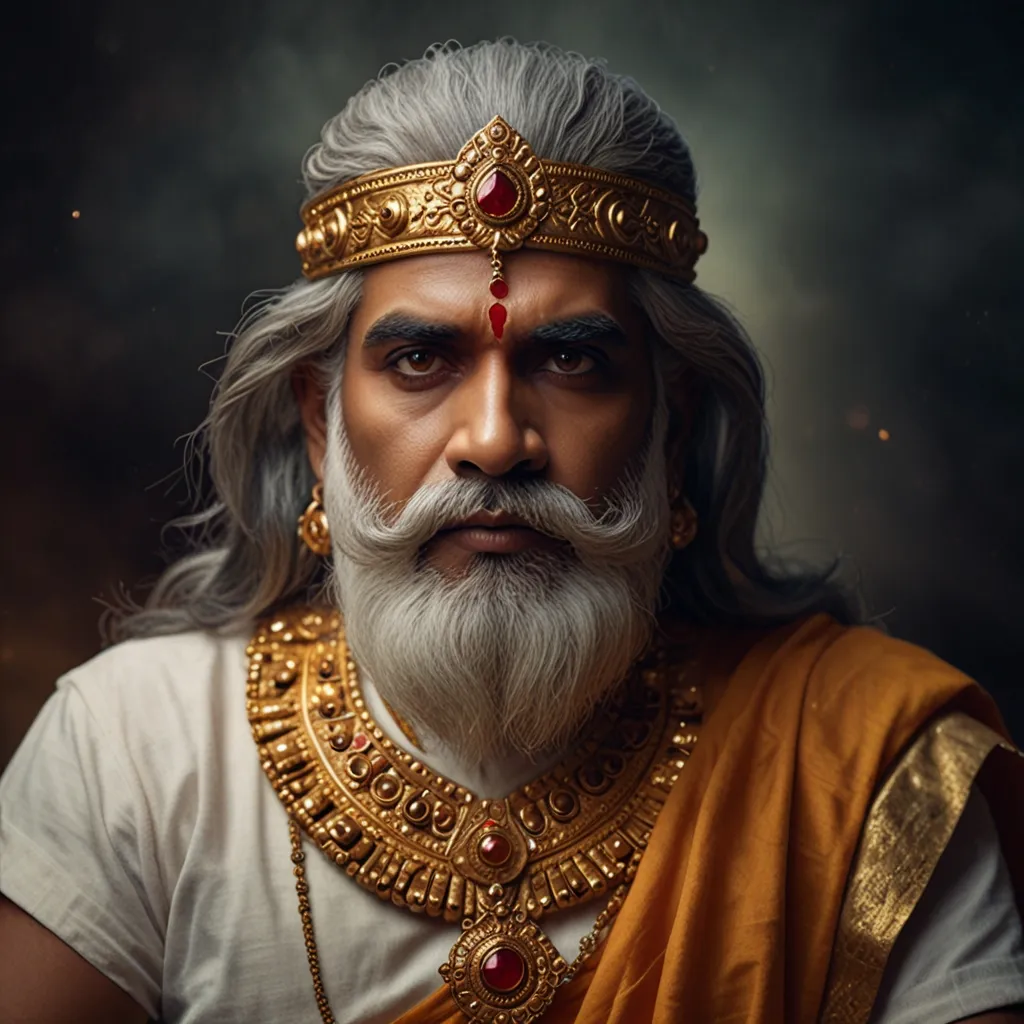As we delve into the vast and intricate tapestry of the Mahabharata, it’s easy to get caught up in the grand narratives of the Kurukshetra War and the profound philosophical dialogues of the Bhagavad Gita. However, there are lesser-known sections that offer equally compelling insights, and one such section is the Chitraratha Parva.
This Parva, though often overshadowed by more famous episodes, provides a unique lens through which we can explore the interplay of fate and free will, karma and dharma, and the art of negotiation in ancient Indian thought. Let’s embark on a journey with Arjuna and his brothers as they encounter the Gandharva king, Chitrasena, and uncover the rich narratives and moral quandaries that this section has to offer.
The Encounter with Chitraratha
The story begins with the Pandavas, after their narrow escape from the lac palace, finding themselves in a forest along the banks of the Ganges. It is here that they stumble upon Chitraratha, a Gandharva king, who is enjoying a bath with his wife Kumbhinasī under the cover of night. This encounter is not just a chance meeting; it sets the stage for a series of events that will test the Pandavas’ courage, wisdom, and understanding of the world.
Arjuna, ever the vigilant warrior, spots Chitraratha and his wife, which leads to a confrontation. Chitraratha, feeling his privacy has been violated, engages Arjuna in a fierce battle. Despite being a formidable fighter, Chitraratha is eventually subdued by Arjuna and brought before his brothers. This could have been the end of the story, but instead, it marks the beginning of a fascinating exchange.
The Gift of Knowledge
Kumbhinasī, Chitraratha’s wife, pleads for her husband’s release, and Dharmaputra (Yudhishthira) advises Arjuna to grant her wish. Upon his release, Chitraratha teaches Arjuna the Cākṣuṣīvidyā, the magic art of seeing anything and everything in the three worlds: Heaven, Earth, and the netherworld. This gift is not just a magical ability but a metaphor for gaining deeper insight into the workings of the universe.
In return, Arjuna shares with Chitraratha the secret of the Agniśira missile, a powerful weapon. This exchange of knowledge and skills is more than just a trade; it symbolizes the mutual respect and understanding that can arise from even the most adversarial of encounters.
Stories and Lessons
Chitraratha’s interaction with the Pandavas is not limited to this single event. He narrates several stories that provide valuable lessons on karma, dharma, and the complexities of human relationships. For instance, he tells the story of the feud between Vasiṣṭha and Viśvāmitra, which highlights the consequences of pride and ambition. He also shares tales about the sage Parāśara and other legendary figures, each story woven with moral threads that guide the Pandavas in their own journey.
These stories serve as more than just entertainment; they are teachings that help the Pandavas navigate their destinies with wisdom and courage. They learn about the importance of balance in life, the need to respect the boundaries of others, and the consequences of one’s actions.
Alliances and Conflicts
The Chitraratha Parva also delves into the complexities of alliances and conflicts. Chitraratha, despite being a Gandharva king, becomes a friend and ally to the Pandavas. He offers them gifts, including four hundred excellent horses that can fly like the wind, and advises them to engage a priest for their sacrificial rites. This alliance is a testament to the idea that even the most unlikely of friends can come together in times of need.
However, this section also highlights the conflicts that arise from misunderstandings and violations of boundaries. The initial confrontation between Arjuna and Chitraratha is a prime example of how a lack of understanding can lead to conflict. Yet, through dialogue and mutual respect, they are able to resolve their differences and forge a lasting bond.
Karma, Dharma, and Free Will
At the heart of the Chitraratha Parva lies the exploration of karma, dharma, and the interplay between fate and free will. The stories told by Chitraratha often involve divine interventions that intersect with human actions. For instance, the tale of the feud between Vasiṣṭha and Viśvāmitra shows how the actions of these sages were influenced by both their own free will and the larger cosmic order.
This theme is echoed in the Pandavas’ own journey. Their actions, whether it be Arjuna’s decision to confront Chitraratha or Yudhishthira’s choice to release him, are guided by their understanding of dharma. Dharma, in this context, is not just a moral code but a way of living that aligns with the natural order of the universe.
Modern Dilemmas and Timeless Lessons
As we reflect on the Chitraratha Parva, it becomes clear that the lessons it offers are not confined to ancient times. The themes of karma, dharma, and the art of negotiation are just as relevant today as they were when the Mahabharata was first composed.
In our modern lives, we often face dilemmas that require us to balance personal ambitions with collective harmony. The story of Chitraratha and the Pandavas teaches us the importance of respecting boundaries, seeking wisdom through stories and experiences, and navigating our destinies with courage and integrity.
Leadership, Resilience, and Spiritual Growth
The Chitraratha Parva also offers insights into leadership, resilience, and spiritual growth. Arjuna’s encounter with Chitraratha shows that true leadership is not about dominating others but about understanding and respecting them. The mutual exchange of knowledge and skills between Arjuna and Chitraratha is a model for how leaders can build strong alliances and foster growth.
Moreover, the resilience of the Pandavas in the face of adversity is a testament to the human spirit’s ability to overcome challenges. Their journey, marked by trials and tribulations, is a reminder that spiritual growth often comes through facing and overcoming difficulties.
Weaving Insights into Our Lives
As we weave the insights from the Chitraratha Parva into the fabric of our own lives, we are reminded of the importance of balance, respect, and wisdom. This section of the Mahabharata invites us to reflect on our own actions and their consequences, to seek guidance from the stories of the past, and to navigate our destinies with courage and integrity.
In a world filled with complexities and conflicts, the Chitraratha Parva offers a fresh perspective on how to live in harmony with others and with the universe. It is a reminder that even in the most challenging times, there is always the potential for growth, understanding, and mutual respect. As we journey through life, the lessons from this lesser-known but fascinating section of the Mahabharata can serve as a guiding light, illuminating our path and helping us to make choices that align with the deeper principles of dharma and karma.
